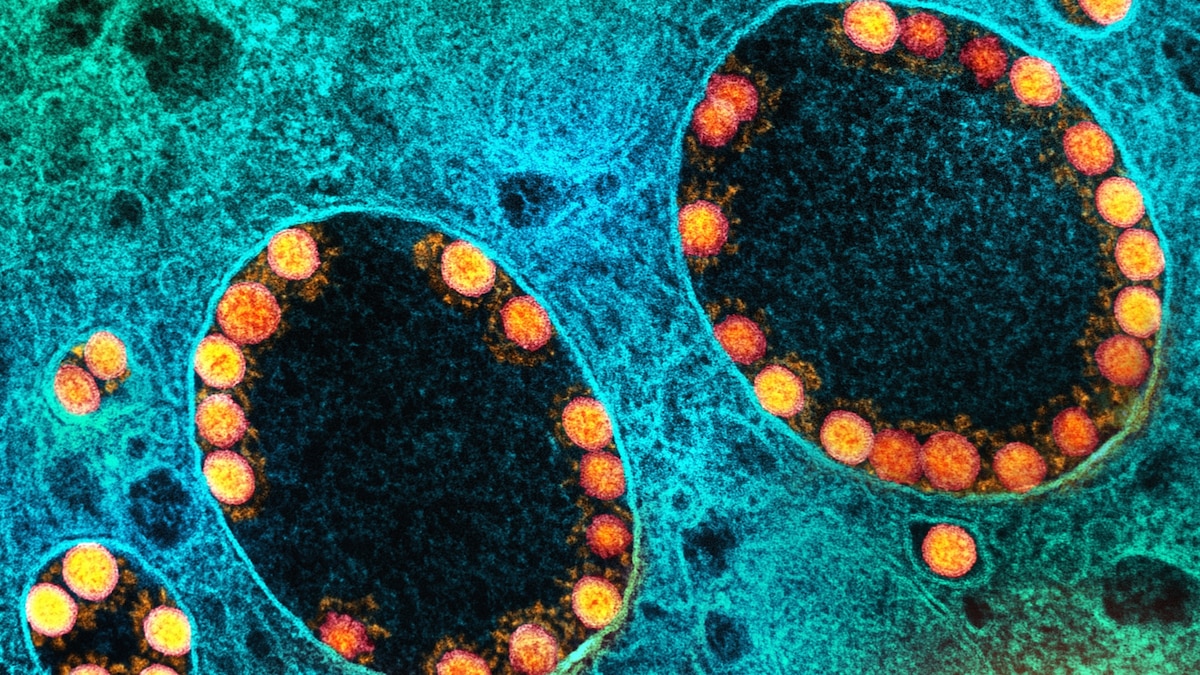Now Reading: How a simple cold could bring cancer back
-
01
How a simple cold could bring cancer back
How a simple cold could bring cancer back

Some cancer cells don’t die—they go dormant. Long after remission, these “sleeping” cells can linger silently in the body, tucked alongside stem cells in organs like the lungs, liver, or brain. For years, scientists have puzzled over what, if anything, might wake them. Now, a new study published in Nature suggests that common respiratory illnesses like the flu and COVID-19 may do precisely that.
“They could sit there for years and decades, and we don’t really fully understand what awakens them,” says James DeGregori, a researcher at the University of Colorado Anschutz Medical Campus. “And so what we asked was, could an infection of the lungs awaken such cells? And we found that they could, in a pretty dramatic fashion.”
The findings raise big questions for cancer survivors. Could a cold or the coronavirus infection quietly trigger cancer’s return? And what role does the immune system play in all of it?
Here’s what scientists are discovering—and why the answer may lie in how the body fights viruses.
How COVID and the flu may trigger cancer’s return
DeGregori and a robust team of doctors and researchers found that the flu and COVID-19 can awaken dormant cancer cells in the lungs, at least in mice. A separate accompanying survey of tens of thousands of cancer patients from the COVID-19 pandemic showed that the same thing might be occurring in humans.
Previous studies have already linked inflammation caused by bacterial infections or cigarette smoke to the reactivation of dormant cancer cells in the lungs. So the team wanted to know if respiratory illnesses might have the same effect. To test this, the researchers gave the flu and SARS-CoV-2 to mice that had been genetically engineered to have breast cancer. In response, dormant cancer cells that had quietly spread to the lungs began to wake up.
(A new blood test can tell if cancer has returned months before a scan.)
For about a week and a half, the cells stayed awake, but in most cases, fell dormant again once the infection was gone. “The respiratory virus infection causes outgrowth of these cells over a couple week period, but then they go back to sleep.” DeGregori says. “But now they’ve expanded out on the order of 100-fold.”
So, even though many of the mice didn’t immediately get lung cancer, during the infection period, their risk of once again developing cancer increased drastically as dormant cancer used the time to multiply rapidly.
You May Also Like
The culprit behind this reawakening was interleukin-6, or IL-6—a protein the immune system uses to coordinate its response to infection. “It’s basically just a protein that normally travels between cells,” DeGregori explains. “It can normally be a healthy thing within your body to help clear out an infection, for example.”
But when IL-6 meets up with dormant cancer cells, that’s a problem. “So when the dormant cells are present, they take advantage of that inflammatory environment, and it’s used to help them expand, to help them grow out and awaken and create now, a situation where you have a far greater metastatic burden. The cancer cells are usurping a mechanism that would normally be used to get rid of the virus and move on with your life,” DeGregori says.
Could the same thing happen in humans?
Scientists don’t know if this is the same situation that happens when human cancer survivors get respiratory illnesses, but early evidence suggests it’s possible. An analysis of two databases of cancer patients revealed a significant association between cancer-related death and metastasis in the lungs following a coronavirus infection.
Data from the UK Biobank showed that cancer-related deaths in patients diagnosed with cancer at least five years before the pandemic were almost double in patients who contracted COVID-19. In another group of specifically breast cancer patients, their risk of lung cancer increased by nearly 50 percent with a positive coronavirus diagnosis.
(Why cancer rates are rising in young women—and what to do about it.)
One reason dormant cells often escape treatment is that they behave differently from typical tumor cells, says Julio A. Aguirre-Ghiso, the director of the Cancer Dormancy Institute, who was involved in the study. That’s why, even in patients in remission, dormant cancer cells can linger. “The therapies that we have are conceptualized to target dividing cells, and these dormant cancer cells that are sleeping are not dividing,” he says.
Still, many patients, even those who contract a respiratory illness, can live the rest of their lives with dormant cancer cells that never reawaken, Aguirre-Ghiso says. “Some patients may be at this threshold where they were about to reactivate, or they have more advanced disease, and then the inflammation pushes them all the way to symptomatic disease and lethal in some cases.” he says. “But there may be many patients that undergo many infections but may not fully engage in a total reactivation mechanism that brings them to lethality or symptomatic disease.”
Regardless, if what happened in mice is similar to human responses to respiratory illness, contracting the flu or the coronavirus could be a significant risk factor for cancer patients in remission. Inflammation could be giving dormant cells the leeway to multiply, which can severely increase future risk, even if they fall dormant again after just a few weeks.
(When should you get screened for breast cancer—and how often?)
Even though doctors don’t know for sure how many cancer patients develop dormant cells, based on the association between COVID-19 infection and lung-related cancer deaths, taking precautions to avoid respiratory illness may be beneficial for cancer patients to prevent sleeping cells from waking up.
“It’s a no-brainer that people, especially people who have had treatment for cancer and have may have long-term effects on their immune system, should continue to be up to date on their current vaccinations,” says Edwin Ostrin, a pulmonologist at MD Anderson Cancer Center in Texas who was not involved in the study.



























